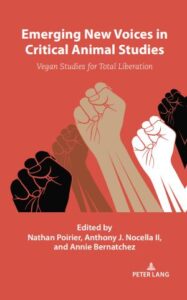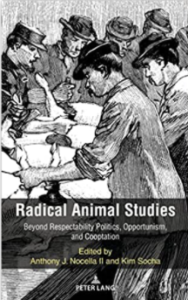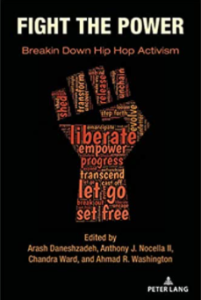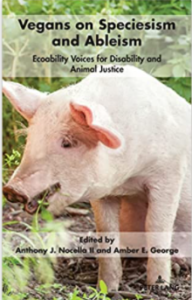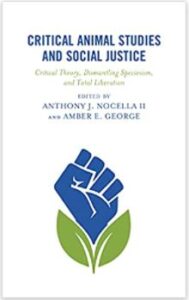Joe Hatfield
PETA’s Queer Dilemma: Advocating for a Rhetoric of Wildness
By, Joe Hatfield, MA Candidate in Communication and Rhetorical Studies at Syracuse University
Abstract
In 2013, the documentary film Blackfish was released to widespread critical acclaim, garnering attention from animal rights activists and the general moviegoer alike. Blackfish sought to expose the conditions of major American theme park SeaWorld, and the plight of sea creatures plucked from their “natural habitat” in exchange for living as entertainers to paying customers. PETA (People for the Ethical Treatment of Animals), a major American animal advocacy group, effectively staked claim to Blackfish by heavily promoting the film, and even re-booting their previous efforts to illuminate injustices within SeaWorld on their SeaWorld of Hurt: Where Happiness Tanks website. In this essay, I explore the rhetorical dimensions of PETA’s efforts to effectively end “abusement park” culture. Throughout my analysis, I employ a rhetorical methodology, focusing on the qualitative aspects of PETA’s campaign. Drawing on Jack Halberstam’s recent theorizations of “wildness” and in consideration of (post)human philosophy, I attempt to intersect critical animal studies and queer theory in order to dissect current rhetorical strategies used by PETA in a protest against SeaWorld in its current state. PETA, an institution that often seeks to ignite social protest, problematically functions as a public governed by anthropomorphic ideas pertaining to animal captivity. Alternatively, I seek to explore the liberatory potential for a counterpublic interested in exchanging the humanist form for something more wild. In this essay, I form three main conclusions. First, PETA engages in polemical protest as a queer form of rhetorical agency. This queer form is hidden behind their public interest presentation. I argue that PETA has failed to realize their status as counterpublic, and for this reason, are failing to utilize polemical protest to its capacity. Secondly, I seek to problematize the dichotomy PETA pushes against, hunter/prey. As PETA seeks to relinquish nonhuman animals back to their origin, PETA reinscribes a new binary, perhaps one more problematic – civilization/wild. In PETA’s “wild” nonhuman animals exist as non-rhetorical and non-agents, which I reject. As an attempt to demonstrate how “the wild” is procured through a literary sentimentality, I explain that “the wild” cannot exist in a capitalist-centric, neoliberal society. Finally, in order to destabilize PETA’s notion of “the wild,” I offer a queer(er) reading of wildness, and urge PETA and all other animal activist to perhaps re-orient their positionality toward the wild. In a humanist world where factory farming, animal testing centers, and places like SeaWorld continue to define the human-nonhuman relationship, a return to wildness could be a salubrious transformation. Ending nonhuman animal abuse will not be achieved overnight, but I hope to at least offer a different ideological orientation for activists.
Bio
Joe Hatfield is a graduate student in the Department of Communication and Rhetorical Studies at Syracuse University. Joe’s research pertains to questions regarding rhetorical theory and criticism, specifically within the realms of subset fields including, queer studies, critical race studies, and animal studies.

